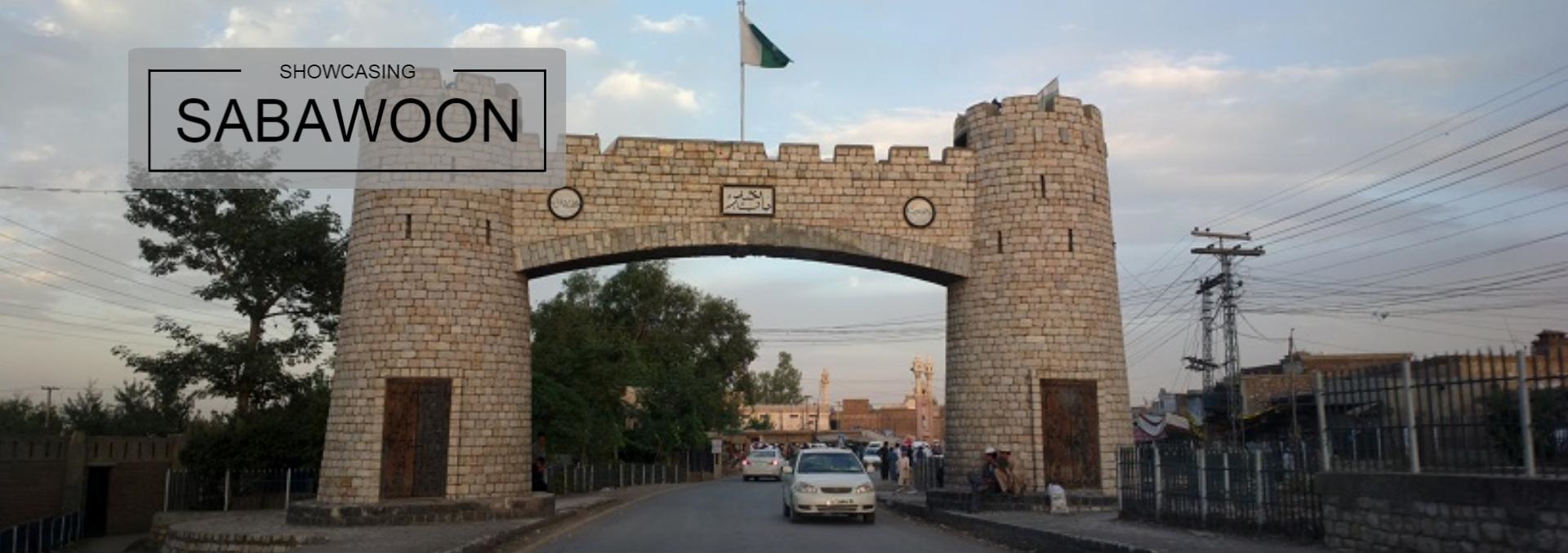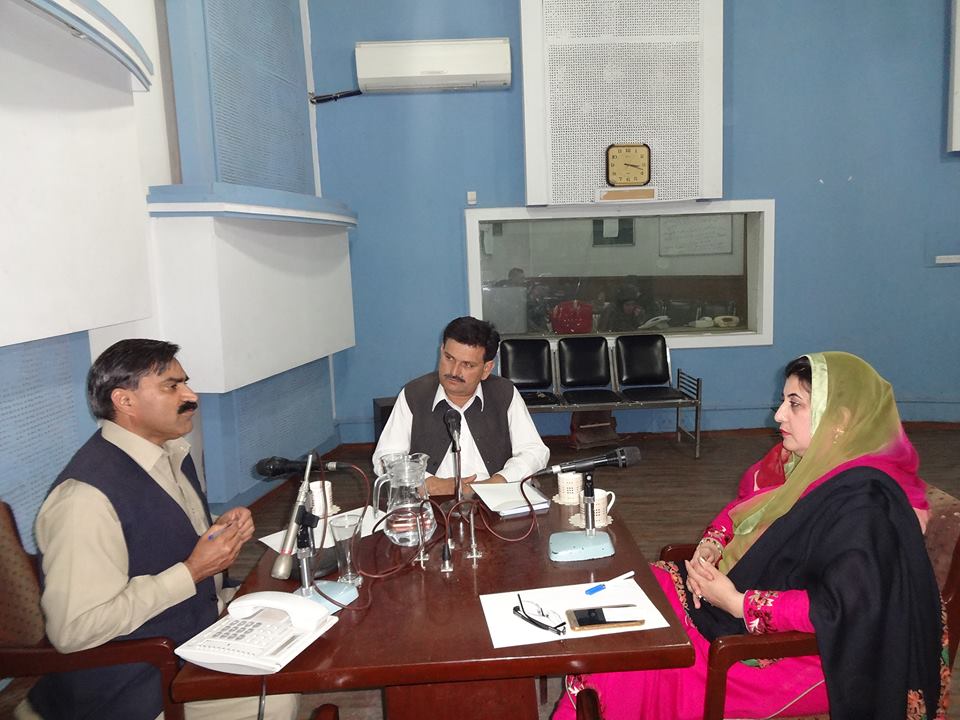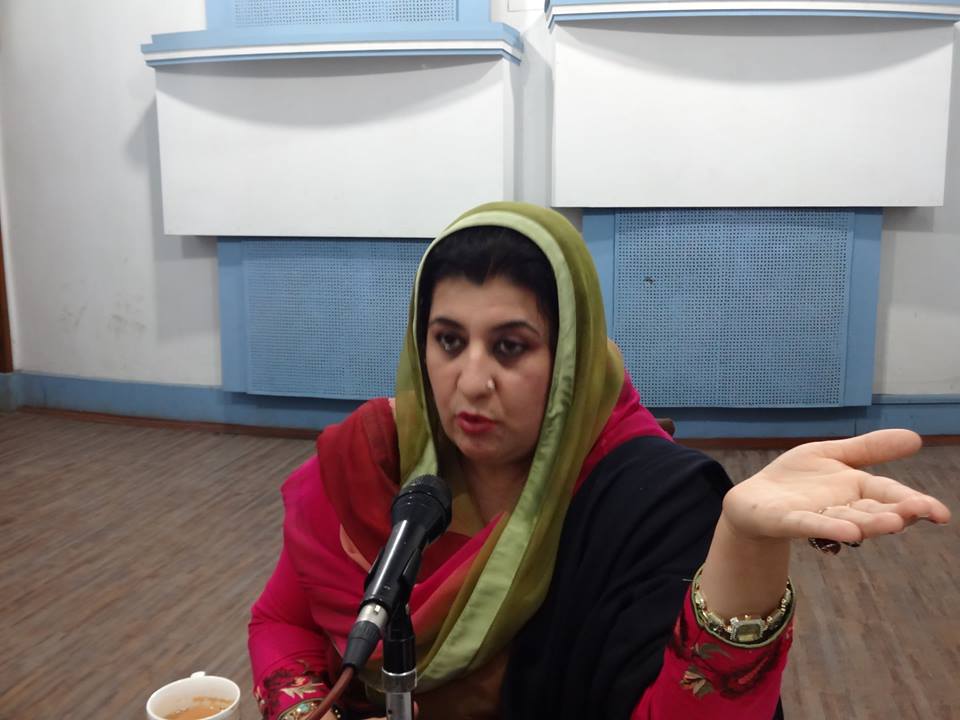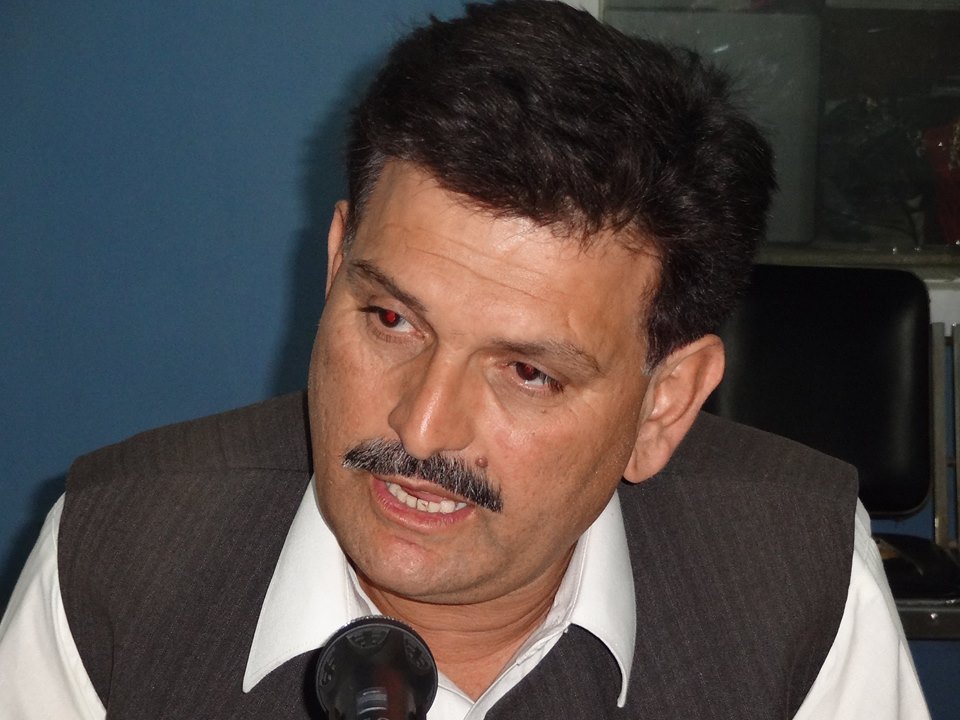February 22, 2016, Peshawar: The Center for Research and Security Studies’ (CRSS) flagship radio program Sabawoon’s latest episode was about the status of Afghanistan’s refugees in Pakistan and the government’s plan for their safe return. The living standard of Afghan refugees, their businesses, entry and exit procedure of refugees on the Torkham boarder and issuance of fake Computerized National Identity Cards (CNIC) to some of the refugees in Pakistan were the key points of discussion. The program also highlighted the government agencies responsibility for the check and balance on refugees’ activities and the role of local government representatives in monitoring and registration.
The program was aired under the theme of “Jarga Marraka” (alive spirits) on Monday. Ms. Zarin Zia, MP, Khyber Pakhtunkhwa (KP) Assembly, and Mr. Khalid Kheshgi, a journalist from KP, participated as a guest.
A report from Bara, Khyber Agency, highlighted the entry and exit process at the Torkham boarder, the visa and registration of refugees in Pakistan.
The report shared the details about the registration mechanism for refugees at Torkham border. Mr. Shams Ul Islam, Political Tehsildar, Khyber Agency, said, “We have established eight counters for registration, where each person’s entry and exit details are recorded. This system also checks the status of their visa on the passport that makes them eligible to enter Pakistan.” Mr. Qazi Fazul Ullah, a local, said, “We have a 2,250 kilometer long border with Afghanistan, therefore it is very hard to stop illegal entry of refugees in Pakistan. The border region is quite sensitive and there is a lack of planning from the government’s side as well.”
Six callers shared their views in the program via telephone calls. They demanded that the government monitor the refugees’ activities in Pakistan and ensure their safe return to Afghanistan, as it is an increasing burden for Pakistan.
A caller on the show, Mr. Aurangzeb Khan, said, “Refugees are burden on us, as our own issues have not been solved yet.” Mr. Fazul Ullah Burqi, said, “Since 1980, the Afghan refugees are in Pakistan. We do not have a proper monitoring system, which creates a hurdle in the peace process of the country.” Another caller, Mr. Jamshid Khan, said, “60 percent of the businesses are handled by refugees in the district of Bannu. This reveals how dominant they are in the region. They have fake CNICs and are even working in government departments.” Another caller, Mr. Sharif Gul, said, “The proper monitoring of refugees is very important. The government should take serious actions to monitor their activities in Pakistan.”
Ms. Zarin Zia, MP, Khyber Pakhtunkhwa (KP) Assembly.
“The federal government needs to make proper legislations for refugees. They are becoming a huge burden on KP. We are already facing shortage of resources, so if their return is not ensured, we can face problems in the future.”
Mr. Khalid Kheshgi, a KP based journalist.
“The refugees not only handle businesses but if we look at the hospitals, they are also full of refugees. There are 1.7 million legal and 1 million illegal refugees in Pakistan. It is time to take proper action to make the entry and exit process effective.”




